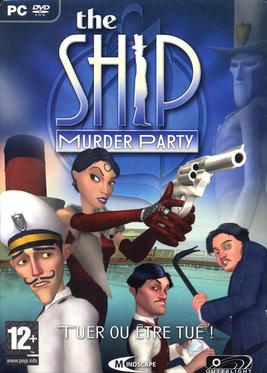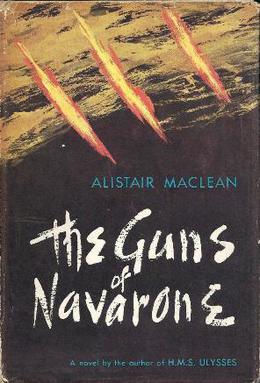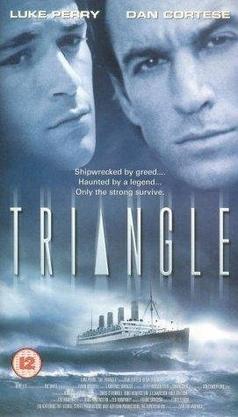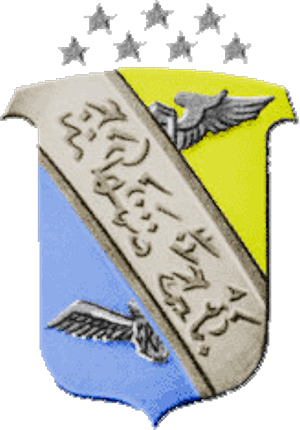
The Laconia incident was a series of events surrounding the sinking of a British passenger ship in the Atlantic Ocean on 12 September 1942, during World War II, and a subsequent aerial attack on German and Italian submarines involved in rescue attempts. RMS Laconia, carrying 2,732 crew, passengers, soldiers, and prisoners of war, was torpedoed and sunk by U-156, a German U-boat, off the West African coast. Operating partly under the dictates of the old prize rules, the U-boat's commander, Korvettenkapitän Werner Hartenstein, immediately commenced rescue operations. U-156 broadcast her position on open radio channels to all Allied powers nearby, and was joined by the crews of several other U-boats in the vicinity.

The Pied Piper is a 1942 American film in which an Englishman on vacation in France is caught up in the German invasion of that country, and finds himself taking an ever-growing group of children to safety. It stars Monty Woolley, Roddy McDowall and Anne Baxter. The film was adapted by Nunnally Johnson from the 1942 novel of the same name by Nevil Shute. It was directed by Irving Pichel.

USS Guadalcanal (CVE-60) was a Casablanca-class escort carrier of the United States Navy, which served during and after World War II. She was the first ship to carry her name. She was the flagship of Task Group 22.3, a hunter-killer group which captured the German submarine U-505 in 1944.

Piece of Cake is a 1983 novel by Derek Robinson which follows a fictional Royal Air Force fighter squadron through the first year of World War II, and the Battle of Britain. It was later made into the 1988 television serial Piece of Cake.

Commander Charles Herbert Lightoller, was a British mariner and naval officer who was the second officer on board the RMS Titanic. During the ship's sinking, and as the officer in charge of loading passengers into lifeboats on the port side, Lightoller strictly enforced the women and children only protocol, not allowing any male passengers to board the lifeboats unless they were needed as auxiliary seamen. He was the most senior officer to survive the disaster. Lightoller served as a commanding officer in the Royal Navy during World War I and was twice decorated for gallantry. During World War II, in retirement, he voluntarily provided his personal yacht, the Sundowner, and sailed her as one of the "little ships" in the Dunkirk evacuation.

The Little Prince is a 1974 British-American sci-fi fantasy-musical film with screenplay and lyrics by Alan Jay Lerner, music by Frederick Loewe, arranged and orchestrated by Angela Morley. It was both directed and produced by Stanley Donen and based on the 1943 classic children-adult's novella, The Little Prince, by the writer, poet and aviator Count Antoine de Saint-Exupéry, who disappeared near the end of the Second World War some 15 months after his fable was first published.

Captain Eric Melrose "Winkle" Brown,, Hon FRAeS was a British Royal Navy officer and test pilot who flew 487 types of aircraft, more than anyone else in history.

The Shepherd is a 1975 novella by British writer Frederick Forsyth.

The Ship is a first-person shooter video game developed by Outerlight using Valve's Source engine. The game was released on 11 July 2006, on Steam with retail distribution in Europe and Australia in September, and 10 April 2007, for North America. A playable concept for The Ship was released as a modification for the game Half-Life in 2004.

William Taylor Adams, pseudonym Oliver Optic, was an academic, author, and a member of the Massachusetts House of Representatives.

The Guns of Navarone is a 1957 novel about the Second World War by Scottish writer Alistair MacLean that was made into the film The Guns of Navarone in 1961. The story concerns the efforts of an Allied commando team to destroy a seemingly impregnable German fortress that threatens Allied naval ships in the Aegean Sea and prevents over 1,200 isolated British Army soldiers from being rescued.

Angels One Five is a 1952 British war film directed by George More O'Ferrall and starring Jack Hawkins, Michael Denison, Dulcie Gray, John Gregson, Cyril Raymond and Veronica Hurst. Based on the book What Are Your Angels Now? by Pelham Groom, the plot centres on a young fighter pilot immediately before and during the Battle of Britain in the Second World War. Some scenes in the film were shot at RAF Uxbridge, where there was a wartime operations room.

Bertram Arthur "Jimmy" James, MC, RAF was a British survivor of The Great Escape. He was an officer of the Royal Air Force, ultimately reaching the rank of Squadron Leader.

The Triangle is a 2001 thriller television movie directed by Lewis Teague and starring Luke Perry and Dan Cortese. Released on August 13, 2001, it was filmed in Barbados and Canada.

The 350th Fighter Group was an air combat unit of the United States Army Air Force formed in 1942 and inactivated in 1945. The fighter group consisted of 345th, 346th and 347th Fighter Squadron. The group was formed in England in 1942 flying Bell P-39 Airacobras and participated in the Mediterranean and North African Campaigns of World War II. 350th Fighter Group was based in North Africa, in Algeria and Morocco from January to July 1943. They then moved on to the Mediterranean islands of Sardinia and Corsica in November 1943 and February 1944 and were based in Italy from September 1944 to July 1945. After the group was inactivated on 7 November 1945 at Seymour Johnson Air Force Base following the end of the war. It was redesignated the 112th Fighter Group and placed under the control of the Pennsylvania Air National Guard in 1946.

Bill Bergson and the White Rose Rescue is the third and last novel about the Swedish "master detective" Kalle Blomkvist, written by Astrid Lindgren.
Harry Alexander Yates, AFC was a Canadian pilot and chiropractor. He was best known for flying Lawrence of Arabia and Harry St. John Philby to Cairo, breaking a speed record for that flight.
Antis (1939–1953), also known as Ant, was a dog who received the Dickin Medal in 1949 from the People's Dispensary for Sick Animals for bravery in service in England and North Africa during the Second World War.

The Marine Branch (1918–1986) was a branch of the Royal Air Force (RAF) which operated watercraft in support of RAF operations. Just days after the creation of the RAF itself, the Marine Craft Section (MCS) was created with the transfer of Royal Naval Air Service (RNAS) vessels and personnel to the new service. Originally tasked with the support of RNAS, and later RAF, seaplanes, Marine Craft Section was to achieve its greatest size during the Second World War, and achieved fame for its role in air-sea rescue operations. After the war MCS was granted full branch status on 11 December 1947; however, post-war the role of the new branch became greatly reduced with the end of the British Empire, the withdrawal of flying boats from service, and the increasing use of helicopters in air-sea rescue. The branch was disestablished on 8 January 1986.

The Greatcoat is a 2012 ghost novel by English writer Helen Dunmore, This imprint is a partnership between Arrow Books and Hammer Film Productions.


















